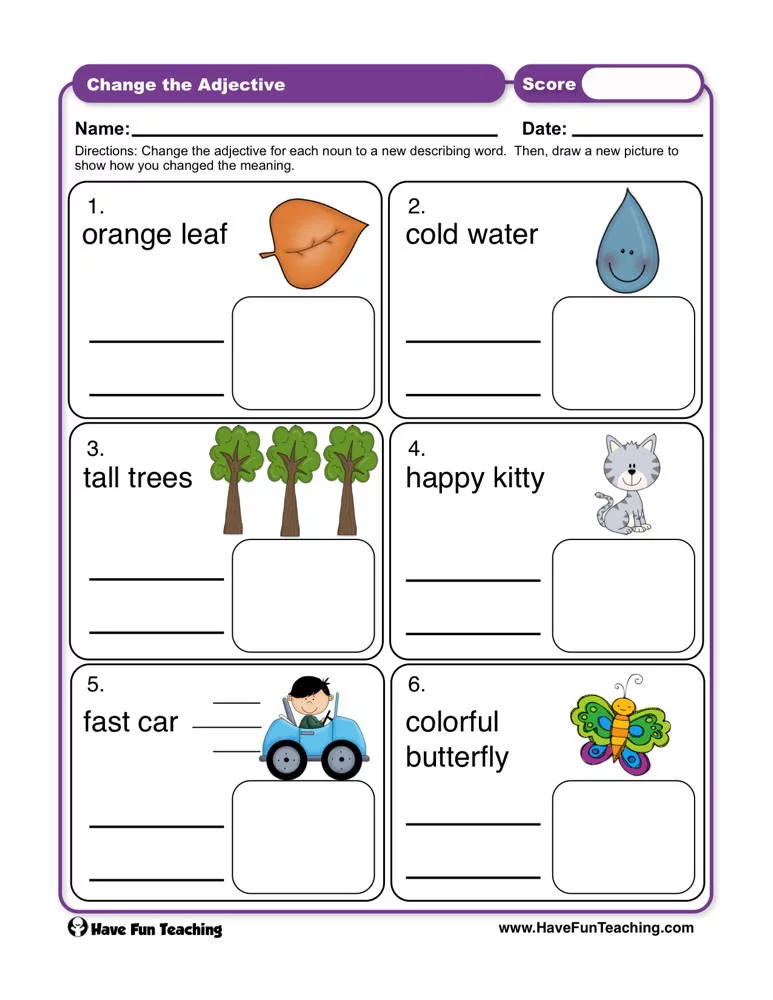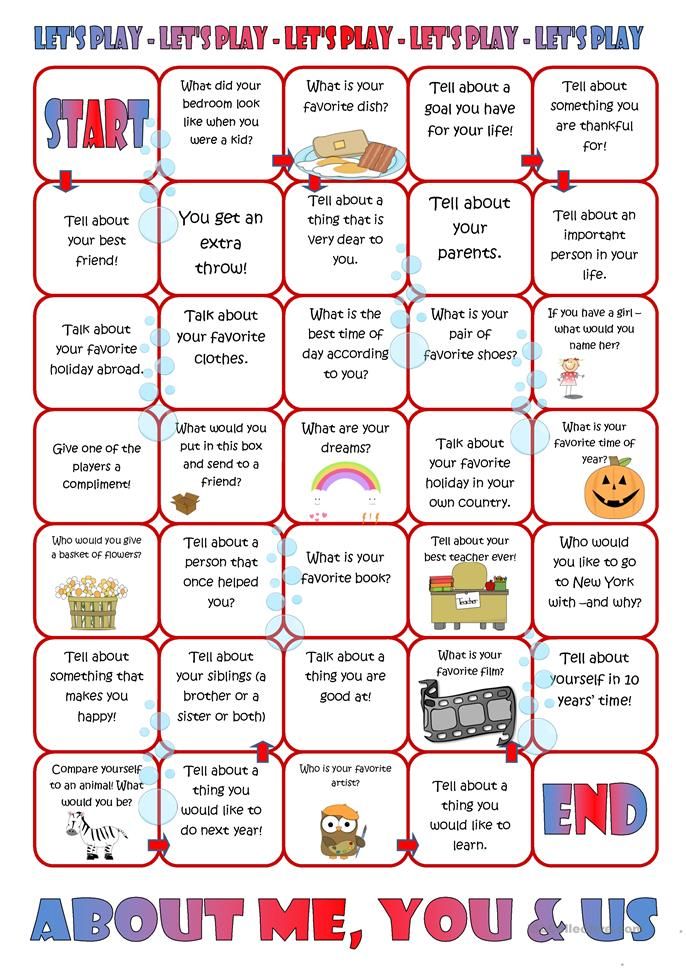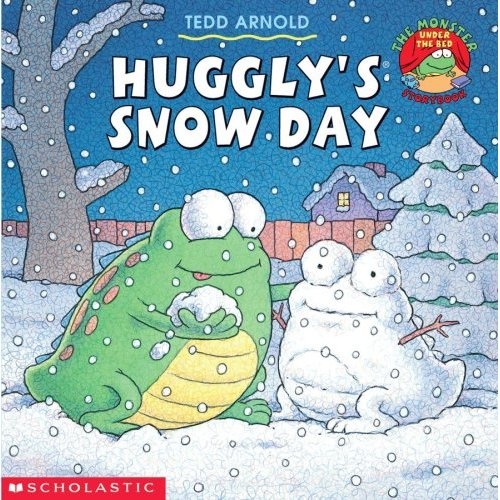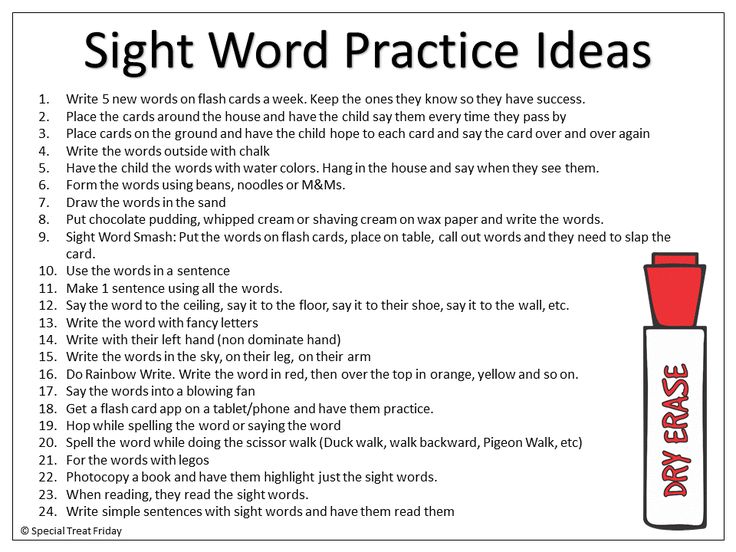Pretend play activities
What is imaginative play? 10 ideas for the whole family
- Home/
- Inspire Environmental Play/
- What is imaginative play? 10 ideas for the whole family
What is imaginative play, and how can it help kids? Find out here – and discover 10 fun imaginative play ideas to try with your little ones.
Have you ever bought your little one a toy, only to watch them play with the packaging for hours instead? With a little imagination, children can turn the simplest of objects into toys worthy of hours of attention. This kind of pretend-play is worth encouraging, too – here’s why.
What is imaginative play?
Imaginative play is when a child uses their imagination to role-play scenarios they have seen, experienced or would like to experience. It’s a kind of open-ended, unstructured play, with no rules, goals, or result – except that kids learn a lot along the way.
Examples of imaginative play can include pretending to cook, clean, save the world, beat bad guys, host exceptionally dignified dinner parties, become the mayors of cities, slay dragons and extinguish fires. There is no limit to what can be considered imaginative play, as long as your child is using their imagination (and sometimes, props) to act out the scenario.
So what are the benefits of imaginative play?
Kids these days are surprisingly busy. As well as school and homework, plenty of them also play sports, join clubs, are tutored, and take music or language lessons. Imaginative play allows kids to relax, let go, and just be kids.
But the benefits of imaginative play don’t stop there. Experts believe (pdf - 3.8MB) that this kind of real play can do a lot for kids’ development, improving their social and language skills, boosting their creativity and problem-solving abilities, keeping them active, and (most importantly) making them happy.
So how do you pull kids away from TVs, tablets, and laptops, and encourage them to simply play? Here are some examples of imaginative play activities to get you started.
10 imaginative play ideas to try with your kids
While the imaginative play ideas below can help you kick off some amazing games of pretend with your kids, it’s important to avoid imposing your own idea of what the game should be on them.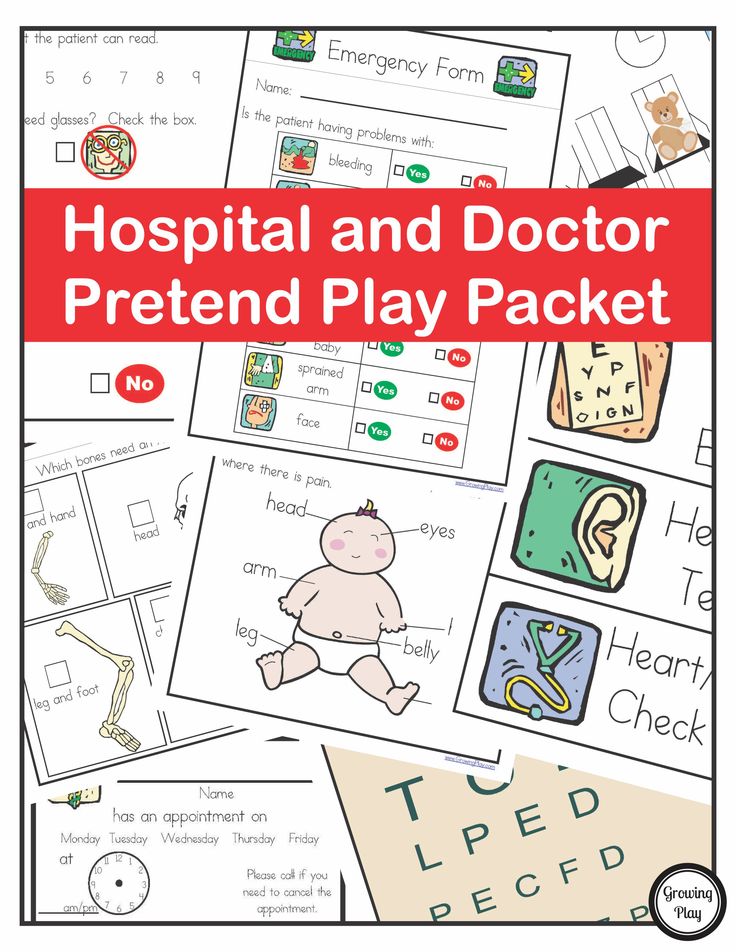 If your kids say the rug you bought for an imaginary picnic is a patch of deadly quicksand, go with it – and start looking for a branch to pull them out!
If your kids say the rug you bought for an imaginary picnic is a patch of deadly quicksand, go with it – and start looking for a branch to pull them out!
Cook an imaginary meal.
Children love to act out the ordinary things their parents do. Help your little one get into the role of future chef by laying out cooking equipment, “ingredients”, or even a drawn-out hob for them to play with. Let them serve you up a meal, and prepare to pretend that mud pie is your favourite.
Throw picnics and tea parties.
Bad weather outside? No problem. Set up your own indoor picnic with a picnic rug, your child’s favourite toys and a few kitchen-related props. Remember: pinkies up at all times, and never fail to ask whether Teddy would like more tea or cake. Etiquette matters.
Play super heroes.
Don a cape or choose an action figure and embark on the greatest fight between good and evil that the world has ever seen.
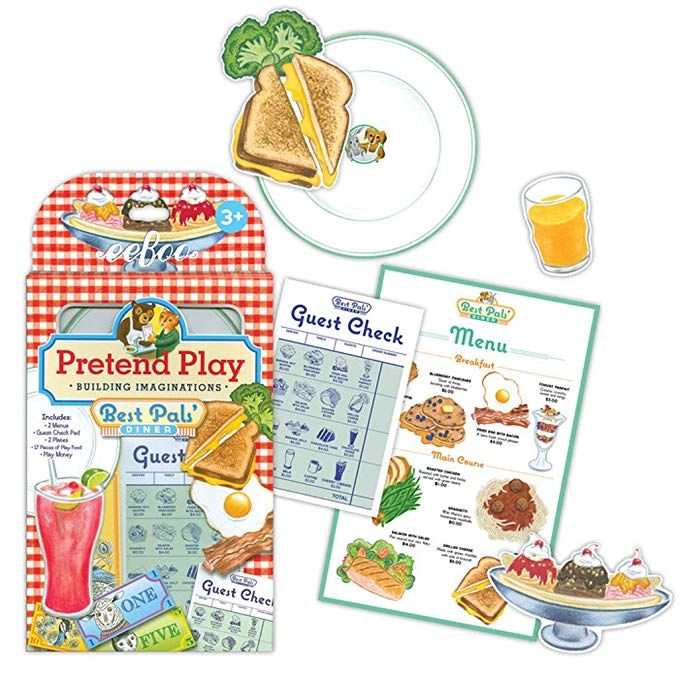 It’s even more fun if you play the villain and let your child defeat you. Perfect your “I’m meeeellllltiiiing” speech, and remember that you would have gotten away with it, too – if it weren’t for those pesky kids . . .
It’s even more fun if you play the villain and let your child defeat you. Perfect your “I’m meeeellllltiiiing” speech, and remember that you would have gotten away with it, too – if it weren’t for those pesky kids . . . Turn a box into . . . anything.
One of the best things about imaginative play is that you don’t need any special props to do it. For example, an ordinary large-ish cardboard box can become a house, a car or an aeroplane. Flatten it out, and you have a desert island. Give your little one a few boxes and watch for a bit to see what they do. Jump in once they’ve decided what the game is going to be.
Put on a performance.
It’s the ultimate improv exercise: using whatever props you have to hand (puppets, dolls, action figures, hairbrushes, boxes can all help), act out a play with your child. Let them dictate the plot as you go!
Plant up a (fake) garden.
They might only be cardboard cutouts of flowers and imaginary vegetable patches, but your child can still have fun watering, weeding and looking after them.
 All the fun of a real garden, with none of the risk.
All the fun of a real garden, with none of the risk. Build a city.
Toys like Lego and building blocks can be useful props for this game. Help your little one build a metropolis, then run the town together.
Clean the house.
Ever turned around after doing a household chore, only to find a little helper copying you? Kids are often strangely fascinated by housework. The next time you’re vacuuming or mopping the floor, give your child a prop so they can follow you around the house and take part.
Run a shop.
If your child owned a shop, what would they sell? Help your child stock their shop’s cupboards, pretend to be a series of customers, and use (fake) money to buy their wares.
Play explorer. With a simple magnifying glass, accompany your child on an expedition around the house. Could a hair clip be the key to a lost temple? A sweet wrapper the cloak of a tiny magician?
Sounds fun, right? Remember, the benefits of imaginative play can extend to you too — so connect with your inner child and lose yourself in a world of imagination.
Share
FacebookTwitter24 Practical Pretend Play Ideas + Why Pretend Play is So Important
You are here: Home / Activities / Fine Motor / 24 Practical Pretend Play Ideas + Why Pretend Play is So Important
4 Feb
Fine Motor
Gross MotorKindergartnersPreschoolersToddlersPretend Play
Resources6 Comments
SHARE POST
I have always thought my kids weren’t into doing any pretend play ideas.
I’ve never been one to make things extravagant, right?
I go simple, and easy — which is why there are so many simple activities that I share.
But that goes beyond activities, I don’t go all out for birthdays or holidays and kind of just let my kids do their thing.
I have never made a dramatic play scene in my life.
And small worlds… they’ve just never interested me.
I’ve always just assumed (because of my lack of providing it) that my kids were not interested in pretend play ideas. At all.
But then I started watching my kids. And holy cow! Their imagination is incredible!
And holy cow! Their imagination is incredible!
They are constantly playing out scenes from the farm (over and over), imagining break down scenarios and what to do when such-and-such happens.
They are doing pretend play at its finest!
I wanted to share with you some not-so-extravagant pretend play ideas that you can help engage your child’s imagination a bit if you’re stuck like I was.
But first…
Why is pretend play so important?
Kids aren’t just living in what many adults would call a fantasy world, instead most of their play has deep roots in reality, and it offers them a chance to practice social situations, adult roles and even play out fears and anxiety in a safe place. – Allison McDonald, No Time for Flash Cards
That pretty much sums it up perfectly!
Here are some more reasons why pretend play is so important:
Benefits of Pretend Play
The Incredible Benefits of Dramatic Play
Stay at Home Educator
The Importance of Pretend Play
Scholastic
How to Make the Most Out of Pretend Play
Positive Parenting Connection
The Need for Pretend Play
Psychology Today
What pretend play ideas can you do that aren’t crazy elaborate?
I’ve put together this list of pretend play ideas as a way to help encourage pretend play in your home.
But also so that it’s easy to do!
Pretend play is about their imagination, so you don’t need the full setup!
Let them imagine it from the basics.
Pretend Play Activities
Pretend Play Vet's Office
Mess for Less
Mailbox Pretend Play
Hands On As We Grow
Candy Shop Pretend Play
Still Playing School
DIY Detective Dress Up
Toddler Approved
Airport Pretend Play
Play to Learn Preschool
Create a Dramatic Play Library
Growing Book by Book
Dramatic Play Pizzeria
Teaching 2 and 3 Year Olds
Homemade Leaf Blower
Hands On As We Grow
Coffee Shop Role Play
The Imagination Tree
Pretend Play Toy Store
No Time for Flash Cards
Office Play Play
Teach Preschool
Post Office Dramatic Play
Buggy and Buddy
Super Hero Cuffs for Pretend Play
Reading Confetti
Dramatic Play Gingerbread Man Activity
Fun-A-Day
Pretend Play Perfume Factory for Kids
Happy Hooligans
I'm the Doctor Pretend Play
Paint Covered Kids
Pretend Play Garden
Pre-K Pages
Preschool Camping Pretend Play
Where Imagination Grows
Beekeeping Pretend Play
Still Playing School
Pretend Play Tea Party
Happy Hooligans
Dentist Play Dough Pretend Play
Fantastic Fun and Learning
Cloud Dough Ice Cream Shop
Mama.
 Papa.Bubba
Papa.BubbaFine Motor Dashboard for Pretend Play
LalyMom
Vegetable Stand Pretend Play
Fantastic Fun and Learning
Sensory bins can be a great starting point for pretend play with young kids! Download our FREE Week of Sensory Bins PDF right here!
I would love for you to think about your days and how your child plays.
What is the one thing you notice your kids pretend play a lot?
SHARE POST
About Jamie Reimer
Jamie learned to be a hands on mom by creating activities, crafts and art projects for her three boys to do. Jamie needed the creative outlet that activities provided to get through the early years of parenting with a smile! Follow Jamie on Pinterest and Instagram!
Reader Interactions
Best RPG (Role Playing) Games - Top RPG (Role Playing) Games of All Time, Popular List
28287
according to the game of gambling
from high to low to high
on the release date
at first the old
rating
from high to high to high
in alphabetical
A-ZZZ -A
Fallout 2
Android, Linux, Mac, PC
RPG
King's Bounty: Legend of the Knight
Mac, PC
RPG, Strategy, Turn-Based Strategy
The Elder Scrolls 5: Skyrim
Nintendo Switch, PC, PS3, PS4, Xbox One , PlayStation 5, Xbox Series
RPG, Action
Bloodborne
PS4
RPG, Action
Borderlands 2
Mac, PC, PS3, PS4, Xbox 360, Xbox One
FPS, RPG, Action
Divin0
RPG, Strategy
Red Dead Redemption 2
PC, PS4, Xbox One
Adventure, RPG, Action
Dark Souls 3
PC, PS4, Xbox One
RPG, Action
The Witcher 3: Wild Hunt
Mac, Nintendo Switch, PC, PS4, Xbox One
RPG
Persona 5
PS3, PS4
Adventure, RPG, Action
Ni no Kuni 2: Revenant Kingdom
PC, PS4
Adventure, RPG
Sekiro: Shadows Die Twice
PC, PS4 One
game, action
Diablo III
Mac, Nintendo Switch, PC, PS3, PS4, Xbox 360, Xbox One
RPG, Action
World of Warcraft
Mac, PC
RPG, MMO
Dark Souls 2
PC, PS3, Xbox 360
RPG, Action
1 2 .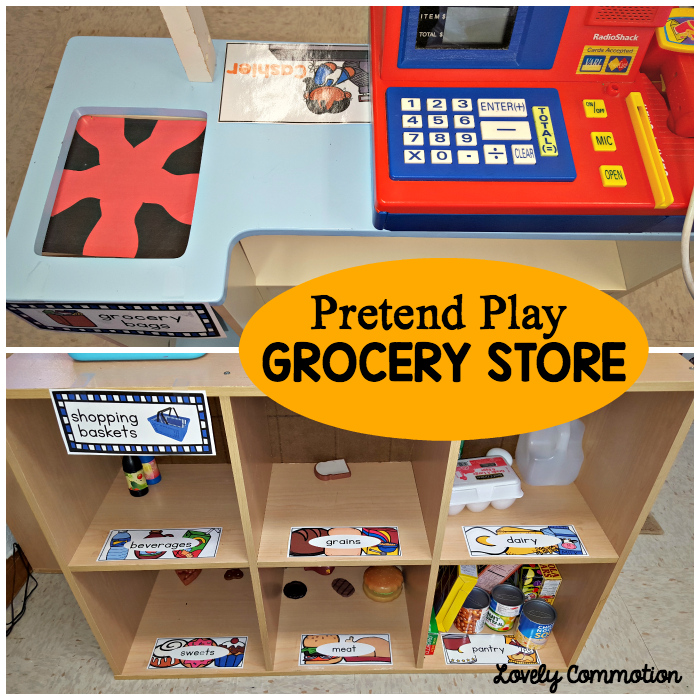 .. 1886 more
.. 1886 more Live action role-playing games in Russia: the history of appearance and development
In 1937, however, few people know that the first mention of games with role-playing elements appeared in Soviet pedagogy as early as the 1920s. The founder of the so-called "team-strategic, collective games" was A. S. Makarenko. In order to diversify the leisure of young offenders, he thought out a set of tasks for the children of the Gorky colony entrusted to him, which included military training, strategic planning and capturing points with toy weapons, and then with real guns. In lecture "Game" 1937 years old, Makarenko spoke for the first time about the reasons for the appearance of such an educational military game. Here is a short excerpt: “ Play is of great importance in a child's life; it is comparable to work for an adult. By the way children play in childhood, you can understand what they will grow up to be. Therefore, the preparation of a young thinking person for adult life takes place in the game, the child learns without noticing it » [1] .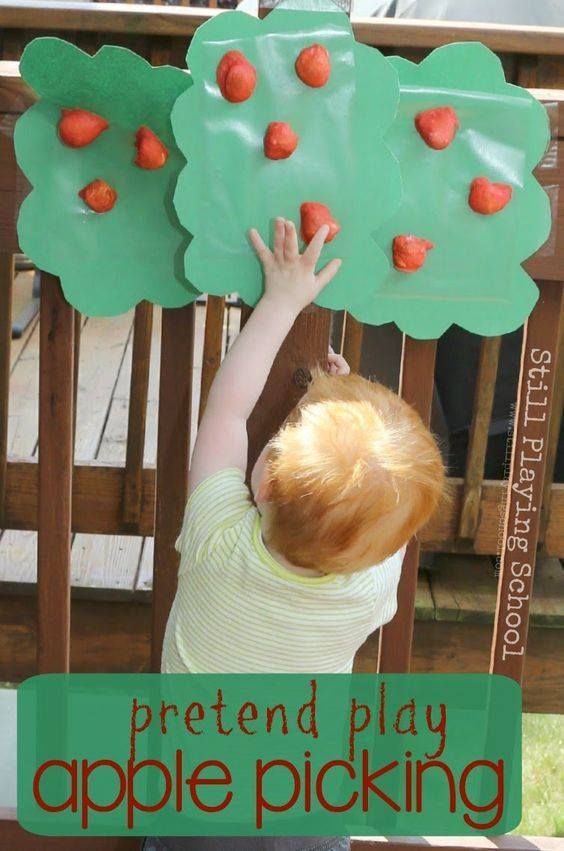
But a reasonable question arises: what is the relationship between adult live action role-playing games (hereinafter - RI) and adolescent psychology? The fact is that the experience of Makarenko was applied in the work of the All-Union Pioneer Organization, in the 60-70s with the participation of Z.V. Krotova developed the rules for such field strategic games as "Zarnitsa" and "Eaglet". Each of these games taught the participants to work in a team, to find a common language among themselves, to properly distribute roles to achieve results. Thus, the collective games for the pioneers became the first timid steps in the development of polygon RI in Russia, in the form in which they are known to us today. nine0005
Field-strategic game Zarnitsa
Such games were called differently, but it was the “role-playing game” that this way of educational leisure was named in 1960 thanks to the wonderful teacher D. B. Elkonin. He first spoke of this phenomenon as "creative role-playing".
Adult RI originated from children's games and went a long way of becoming, filling with deep meaning, complex mechanics, and today is much closer to psychological training than to educational strategies. But let's follow this path from the very beginning. nine0005
So, childhood. Children caught fire with what is important to them, trying to be like their favorite characters from the pages of books and television screens. Swords replaced sticks, costumes replaced raincoats made of rags, old hats, everything that can be found on the mezzanine in the parental home. And now, in the ingenuous young imagination, scenes from Robin Hood, Ivanhoe, The Three Musketeers were already unfolding, there were wars of Cossacks and robbers. Entourage and rules were not important here. All this happened spontaneously, without the participation of adults and on the strength of imagination alone. No one has yet rented training grounds or special premises - there was enough street for such games. Then some of the enthusiastic guys were lucky to get into children's clubs such as Caravels or Brigantines. In the Caravel club, which arose in 19In 1974, in Yekaterinburg, they were engaged in fencing with children, studied the basics of maritime affairs, and even made amateur feature films. And the military-historical club "Brigantine", which appeared in 1976, gradually became one of the first clubs of the national reenactment movement due to the emphasis on hiking and patriotic education.
Then some of the enthusiastic guys were lucky to get into children's clubs such as Caravels or Brigantines. In the Caravel club, which arose in 19In 1974, in Yekaterinburg, they were engaged in fencing with children, studied the basics of maritime affairs, and even made amateur feature films. And the military-historical club "Brigantine", which appeared in 1976, gradually became one of the first clubs of the national reenactment movement due to the emphasis on hiking and patriotic education.
Another important pillar that laid the foundation for modern Russian Ingushetia is Soviet tourism. What's a camping trip without campfire songs? Gradually, many talented poets and musicians appear in the tourist movement, who are united by a love of nature and adventure. Arising at 19In 1968, near Samara, the Grushinsky Festival exists to this day, uniting amateur song lovers. By the way, from such folk art within the framework of the role-playing movement, many well-known groups such as the Mill, for example, have grown.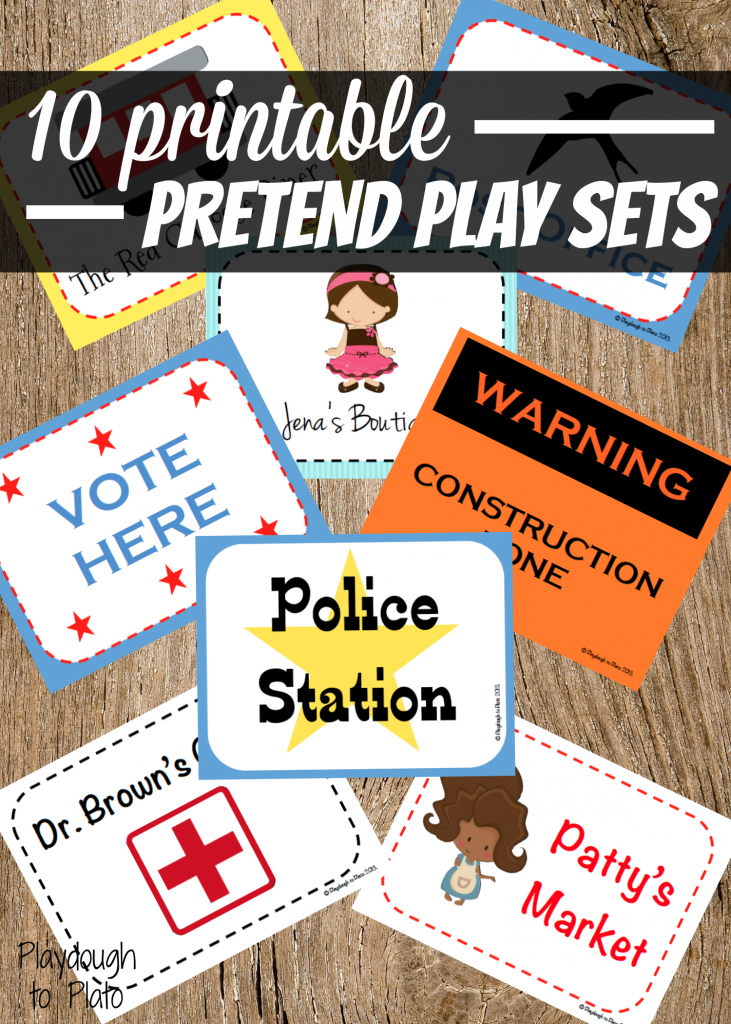
Grushinsky festival in Samara
At the same time, more and more hobby groups appeared, uniting hikers, science fiction lovers, and those who remembered the excitement of children's street games in homemade costumes. At the junction of such a diverse enthusiasm, which was becoming more and more widespread, attracting more and more creative youth, domestic RI was born. nine0005
In 1980, several clubs in Moscow, Kaluga, Yekaterinburg (at that time - Sverdlovsk), Ivanovo and other cities that are fond of fantasy and amateur song, create their own organization called "System", within which they hold their first simple role-playing games. In fact, these are all the same "Zarnitsa", which are considered synonymous with games without a special plot. But gradually the organizers learn to prescribe the plot, think about the motives for the actions of the characters - the process of game creation naturally becomes more complicated. This is the first starting point in the full-fledged history of Russian RI. nine0005
nine0005
So, here we come to the very definition. What is a modern live action RPG? For the sake of interest, let's look at Wikipedia.
Live action role-playing game (LARP) is a kind of role-playing game that is characterized by the direct role-playing of the character's actions. It is very similar to theatrical action, but differs in that the players do not act according to a pre-written script, but according to their character's motivation and personal desires. Unlike verbal or tabletop role-playing games, as a rule, it requires an entourage - a character's costume and equipment, modeling of life and structures, and the surrounding reality. The rules of the game on the game are determined by the master (or master group), who puts this game for the participants (players). nine0005
In general, the definition is quite reasonable, and it can be taken as a basis for understanding what RI is in pivotal moments. Having decided on the concept, let's figure out when the first role-playing game took place in Russia - not at the level of rudimentary attempts to do something similar, but the game in the form in which we are used to them.
And here we return to Tolkien's work - it was "The Hobbit Games" or "HI", "Hishka" in 1990 based on the novel "The Lord of the Rings". Hence, by the way, the ironic term "shocks" (from "Tolkienists", "pushed"), as a synonym for roleplayer. According to various sources, from 130 to 150 people came to the game. And a year earlier, according to eyewitnesses, Tolkien fans put on their fantasy costumes and visited the reconstruction of Borodino, which served as the first impetus for a real live-action role-playing game. nine0005
XI-1990
At the same time, just think about it, “Khishka” in 1990 united players from Moscow to Krasnoyarsk, and this is almost 4000 km, although everything happened in those years when no one else had there was the Internet, and participants could not be called by mailing in social networks. The organizers, traditionally referred to as "masters", wrote paper letters to the players, which could take weeks. And the result was a decent tactical game, in which each team not only chose a name for itself or decided on the choice of a dark or light block, but was also not too lazy to think over individual symbols, the internal structure of its game people or mini-ethnos.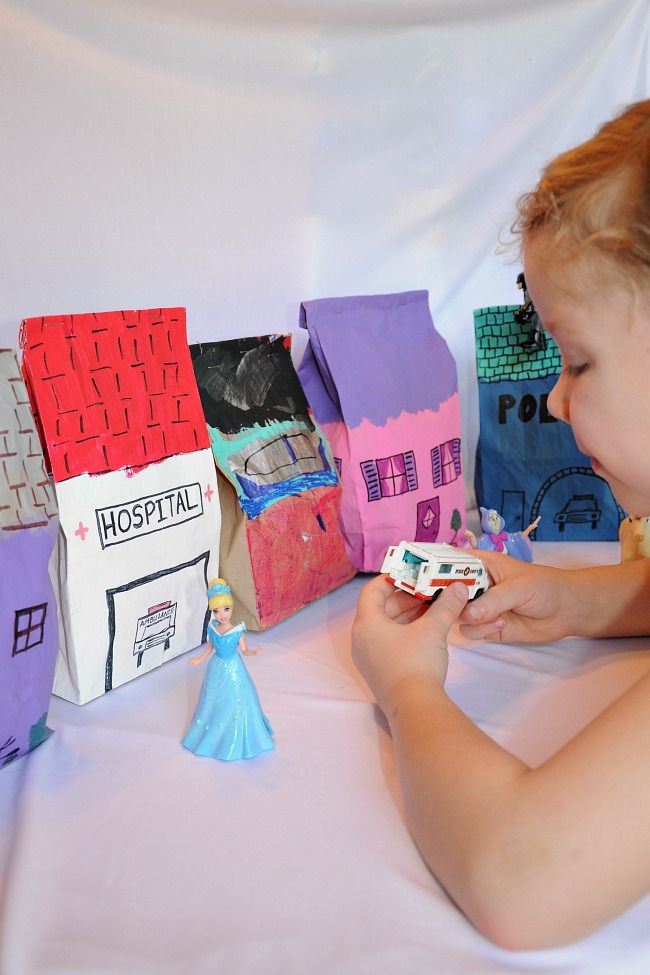 What was not written in the original source, the players composed themselves. For example, the southern region of Middle-earth Harad for many years of the existence of games on "HI" was portrayed by players as an Arab, and as an African, and even an Asian state. As they say, to your taste and color. nine0005
What was not written in the original source, the players composed themselves. For example, the southern region of Middle-earth Harad for many years of the existence of games on "HI" was portrayed by players as an Arab, and as an African, and even an Asian state. As they say, to your taste and color. nine0005
"Hobbit games" - a game of the "harsh nineties", which does not provide for rules for costume, all combat scenes were played rather clumsily, since there is no such thing as "role-playing fencing" yet, which means that there are no uniform standards for combat interaction . "Hishka" is a game with ski poles and curtain capes, and if now this approach causes nostalgia and irony, then it was quite enough to recreate the necessary spirit of adventure and heroism. At the same time, if we interview the participants of those first RIs, opinions vary greatly. Someone says that those old games, due to their primitiveness, were just brighter and more soulful, because no one cared what your sword or dress was made of. And someone, on the contrary, notes that they always wanted a good entourage and walls not made of ropes, and RI could not help but follow the path that they have taken at the moment - to authentic costumes and high-quality game weapons. And the point is not that there was “no need” before, it’s just that “there were no resources, but I always wanted to.” Now, a modern roleplayer has many opportunities to get together for a game, simply by clicking on the desired product in the assortment - our site will help you. nine0005
And someone, on the contrary, notes that they always wanted a good entourage and walls not made of ropes, and RI could not help but follow the path that they have taken at the moment - to authentic costumes and high-quality game weapons. And the point is not that there was “no need” before, it’s just that “there were no resources, but I always wanted to.” Now, a modern roleplayer has many opportunities to get together for a game, simply by clicking on the desired product in the assortment - our site will help you. nine0005
Chi-1990
But let's not deviate from the topic. In 1991, an initiative appeared to unite all the role players of the USSR-CIS, to bring everyone together to, let's say, look at each other live. As a result, the first role-playing convention "ZilantCon" was held in Kazan, which brought together several thousand role-players from all over the country. In 1990-1993, games slowly develop, the already mentioned role-playing and historical fencing begins to emerge, which makes combat situations, or, as they are also called “combat”, more beautiful and realistic - this is no longer just waving a stick without any rules. Gradually, our roleplayers come to understand that a beautiful environment is an important component of a good game. Game weapons begin to be produced first from textolite, and then from duralumin, which makes it look like a real one. Moreover, from the very beginning, duralumin was not allowed for all games, since it was considered more traumatic. nine0005
Gradually, our roleplayers come to understand that a beautiful environment is an important component of a good game. Game weapons begin to be produced first from textolite, and then from duralumin, which makes it look like a real one. Moreover, from the very beginning, duralumin was not allowed for all games, since it was considered more traumatic. nine0005
In the 2000s, the final separation of the reenactment and role-playing movements took place. In the context of RI in Russia, this manifested itself in the following main differences: firstly, a role-playing game can be on any topic with the most fantasy costumes and entourage elements, while historical reconstruction is a detailed recreation of a real event, household items, armor that place in history. Secondly, the reconstruction is, to a greater extent, an external component than an internal one, here no attention is paid to a deep plot, the experiences of characters as in a game. And, thirdly, reenactors do not use various imitations of weapons, like role players, only steel blades are used at their events.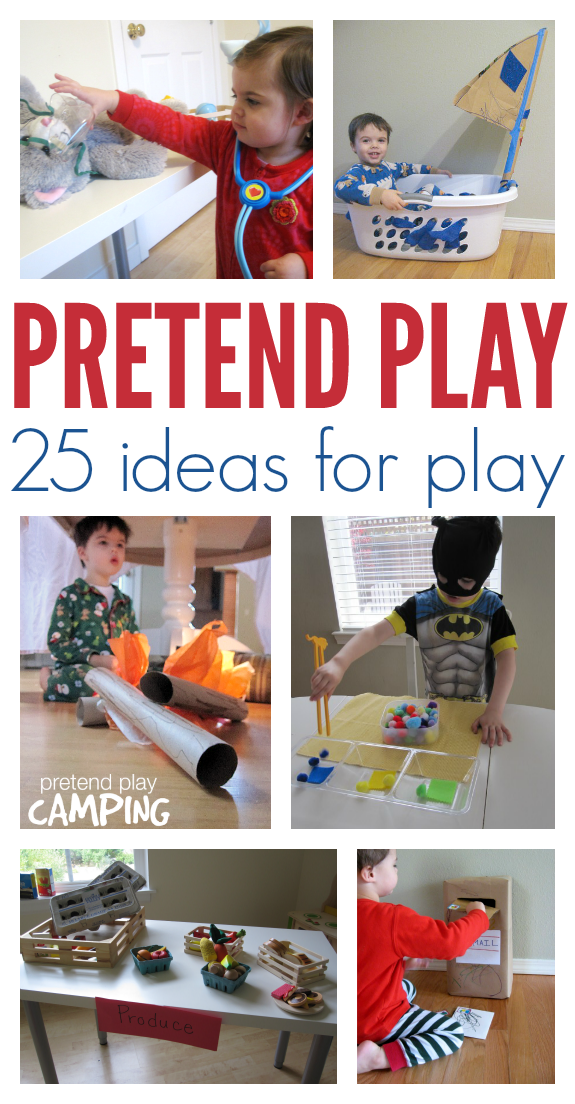 At the same time, re-enactors often attend role-playing games, observing the requirements of their "colleagues" in the hobby in terms of allowing weapons. nine0005
At the same time, re-enactors often attend role-playing games, observing the requirements of their "colleagues" in the hobby in terms of allowing weapons. nine0005
In addition to conventions and small-town role-playing parties, such as Eglador (in Neskuchny Sad) and Mandos (in Tsaritsyno), various sites for role players appeared in the early 2000s. In this regard, there is a noticeable leap in the development of Russian games, as this makes the community more and more open. Among the most popular are the site "Arda-in-the-Kulichki", which was the largest site on the network devoted to Tolkien's problems, as well as the role-playing forums "Eglador Info" and "Manor", the latter exists to this day, uniting masters and players. In Moscow, the role-playing tradition is no longer popular, but still partly alive, to gather on October Square, which is called Poganishche.0005
This is how we imperceptibly approached the present. According to various social studies, more than 15,000 role players live in Russia as of 2021. More than 12,000 of them are the audience of the North-West (~74%): St. Petersburg (~45%), Moscow (~21%), Vologda (~3%), Murmansk (~2%), Arkhangelsk, Severodvinsk ( ~1%), Pskov (~1%), Kaliningrad (~1%). If we consider the portrait of a modern roleplayer, then these are mainly men (55%) and women (45%) aged 25-35. More and more roleplayers order costumes from experienced seamstresses and purchase entourage details, weapons on specialized sites, such as ours. There are many news publics where you can find out the latest news from the central region and not only, among the leading ones is the Role Horn, where everyone can send their material for editorial consideration. And on the forum "KogdaGame" all the projects of the year in different regions are posted. Masters no longer write paper letters to players, communication is increasingly moving online, aided by communication tools such as Skype, Zoom and Discord. Lists of participants are maintained in electronic databases, among the most popular are Join.
More than 12,000 of them are the audience of the North-West (~74%): St. Petersburg (~45%), Moscow (~21%), Vologda (~3%), Murmansk (~2%), Arkhangelsk, Severodvinsk ( ~1%), Pskov (~1%), Kaliningrad (~1%). If we consider the portrait of a modern roleplayer, then these are mainly men (55%) and women (45%) aged 25-35. More and more roleplayers order costumes from experienced seamstresses and purchase entourage details, weapons on specialized sites, such as ours. There are many news publics where you can find out the latest news from the central region and not only, among the leading ones is the Role Horn, where everyone can send their material for editorial consideration. And on the forum "KogdaGame" all the projects of the year in different regions are posted. Masters no longer write paper letters to players, communication is increasingly moving online, aided by communication tools such as Skype, Zoom and Discord. Lists of participants are maintained in electronic databases, among the most popular are Join.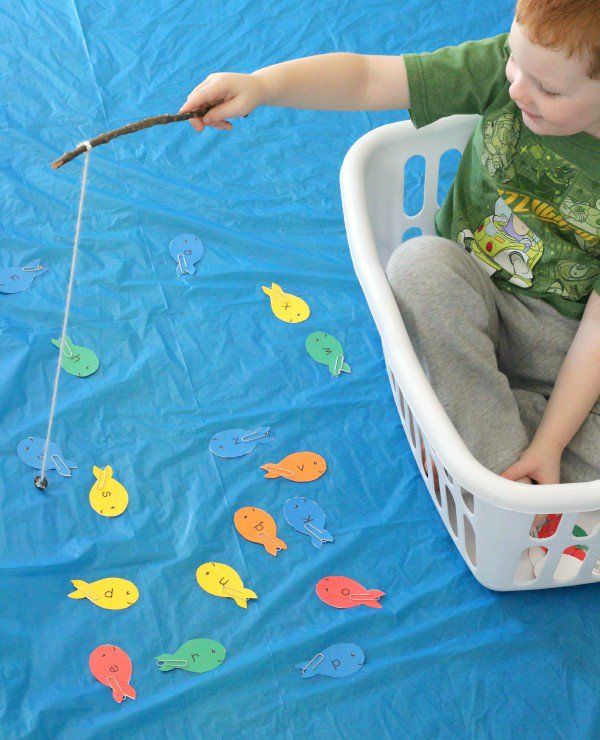 rpg and All.rpg. To date, The Witcher: Beyond 2005 by the master group Stairway to Heaven remains the most populated game, with 3,200 registered members. nine0005
rpg and All.rpg. To date, The Witcher: Beyond 2005 by the master group Stairway to Heaven remains the most populated game, with 3,200 registered members. nine0005
The Witcher: Something More, 2005
It is also important to note the games of MG "Craft" - by far the most massive project in the Warhammer Fantasy Battle universe, which gathers over a thousand participants from Russia and neighboring countries. According to the chief organizer of the game, Vadim Khizhnyak, “we reached the level of costumes for Western games such as Drachenfest, Epic Empires or Quest of Mythodea several years ago.”
Warhammer 2020
Every year, dozens of conventions are held, where speakers speak about the latest developments in the field of game technology and plot construction, among the most attended in the central region Komkon (Moscow), Volk (Nizhny Novgorod), Big Role Tree (g . St. Petersburg), Rubicon (Voronezh). They write scientific papers about role-playing games and defend dissertations. This is no longer a hobby for eccentrics and nerds - the portrait of a modern role player surprises with its elitism. And if earlier it was believed that “people playing role-playing games can be considered in public opinion as socially unsettled and suffering from low self-esteem or loneliness”, now we see the increased attractiveness of this hobby for people over 30 years old, among whom representatives of creative people predominate. professions and business intelligence. nine0005
This is no longer a hobby for eccentrics and nerds - the portrait of a modern role player surprises with its elitism. And if earlier it was believed that “people playing role-playing games can be considered in public opinion as socially unsettled and suffering from low self-esteem or loneliness”, now we see the increased attractiveness of this hobby for people over 30 years old, among whom representatives of creative people predominate. professions and business intelligence. nine0005
Komkon-2019
In addition to polygon role-playing games, games of completely different themes from popular works to author's worlds on comfortable bases with very high requirements for surroundings are increasingly prevalent. Modern RI is an opportunity to immerse yourself in a subjective-alternative reality and work out certain skills that are not characteristic of a person in real life, which makes this type of leisure an increasingly respected and intellectual hobby with a high training potential.


